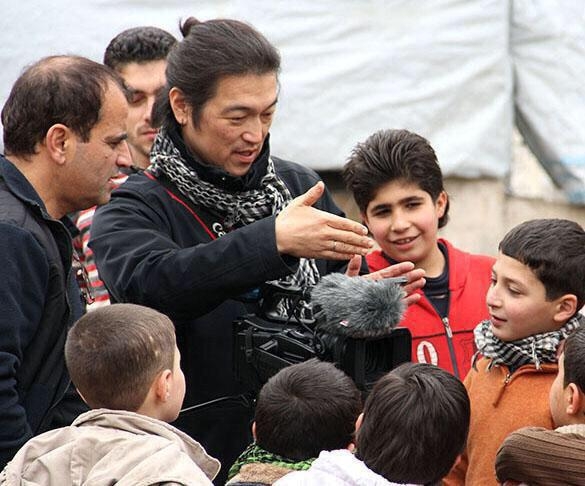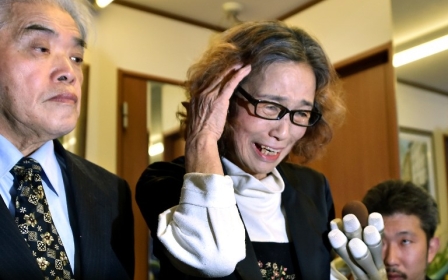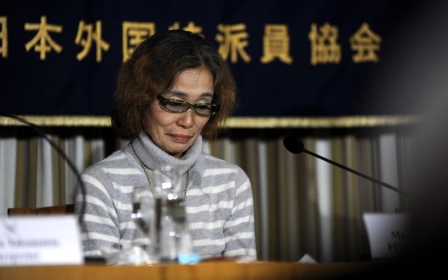Who was Kenji Goto?

Kenji Goto, the 47-year-old Japanese television journalist executed by the Islamic State on Sunday morning, was well known in Japan, with a reputation for reporting from places that other people avoided.
The friendly looking, pony-tailed Goto was a veteran freelance reporter who had covered a variety of hot spots including tsunami-stricken Japan, conflict-ridden Sierra Leone and war zones such as Afghanistan, Syria and Iraq.
"I want to cuddle with the people. That's the best way to express my approach," the Associated Press reported Goto as saying. "By cuddling with them, I can talk with the people. I can hear their views - their pain and their hopes.”
Goto’s reporting focused on refugee camps and orphanages, telling the stories of children suffering violence and hunger. He had always stressed he was not a war reporter but was instead devoted to telling the story of regular people, reported US News Today.
According to Goto's wife, Rinko Jogo, and others who had spoken with him, Goto had gone to Syria late last year to try to save the other Japanese hostage, Haruna Yukawa, 42. Yukawa was shown as killed in a video released on 24 January purportedly by IS militants.
Goto, a father of three, apparently first met Yukawa in Aleppo in April 2013, and he had helped his less-experienced friend with arrangements to travel to Baghdad, reported the Telegraph.
A Facebook page, set up immediately after the first video of Goto and Yukawa released by militants last month, quickly drew tens of thousands of "Likes" and photo postings that showed people from around the world, not just Japan, holding up hand-written signs that said: "I am Kenji."
An online petition demanding the government do more to save Goto collected thousands of signatures. Crowds had gathered outside the prime minister's office, holding up "Free Kenji" and "I am Kenji" signs.
Shortly after crossing the border from Turkey into Syria in October, Goto recorded a video message on his Turkish assistant's mobile phone.
"No matter what happens to me, I will always love the people of Syria," he said calmly, looking straight into the camera.
Goto had been captured at least once before by militants in the Middle East, but he had convinced them to let him go by showing that he was a reporter.
The final post to Goto's Twitter account was made in October 2014.
IS had vowed to kill Goto and Jordanian pilot Maaz al-Kassasbeh by sunset on Thursday unless Amman handed over Iraqi female would-be-suicide bomber Sajida al-Rishawi, who was sentenced to death in Jordan in 2006 for her part the previous year in triple-hotel bombings in Amman that killed 60 people.
The execution of Goto came after Japan said negotiations to win his release in a prisoner exchange had stalled.
New MEE newsletter: Jerusalem Dispatch
Sign up to get the latest insights and analysis on Israel-Palestine, alongside Turkey Unpacked and other MEE newsletters
Middle East Eye delivers independent and unrivalled coverage and analysis of the Middle East, North Africa and beyond. To learn more about republishing this content and the associated fees, please fill out this form. More about MEE can be found here.




